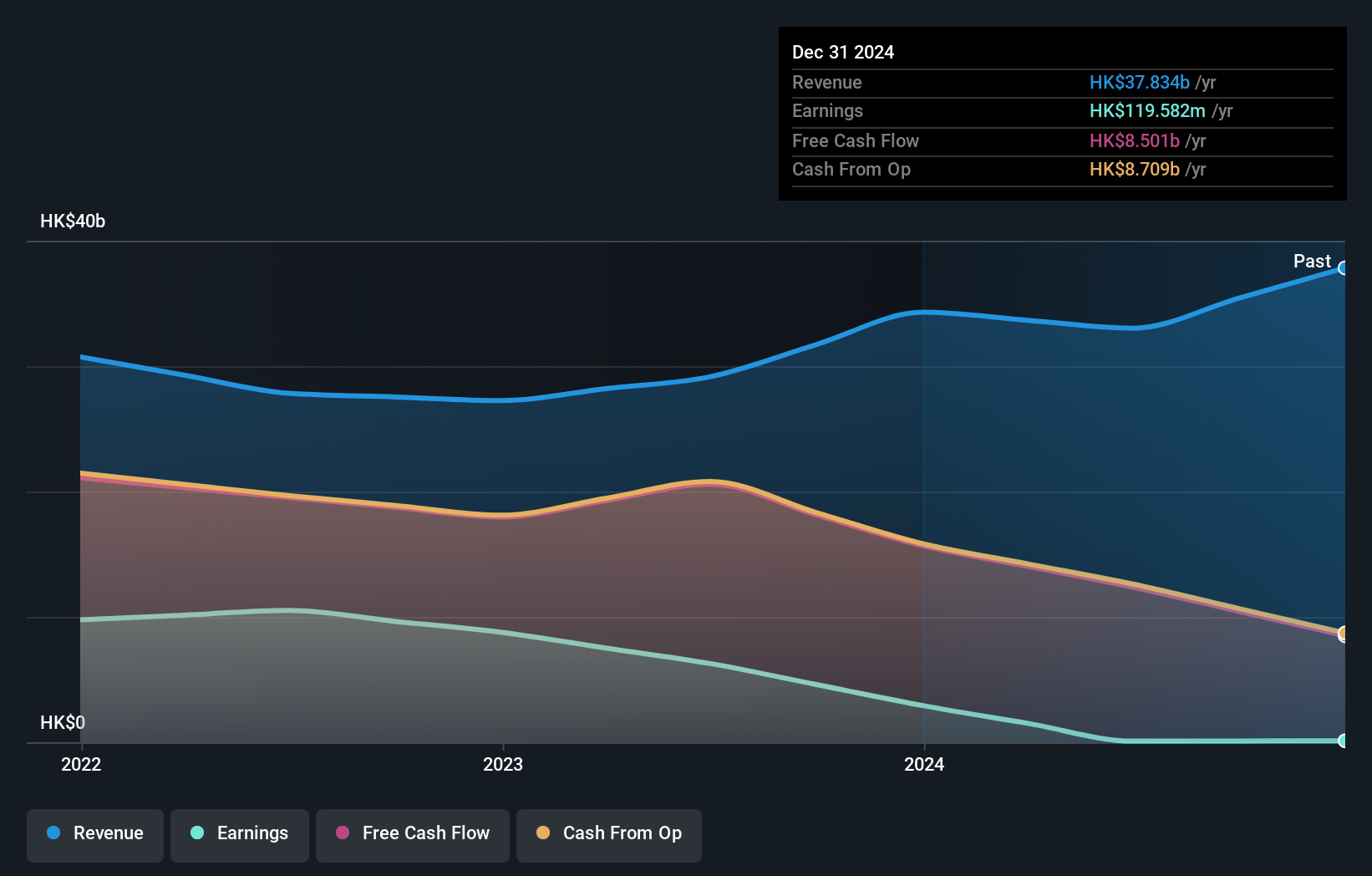- Hong Kong
- /
- Real Estate
- /
- SEHK:754
Insiders were the biggest winners as Hopson Development Holdings Limited's (HKG:754) market cap grew by HK$1.4b last week
Key Insights
- Hopson Development Holdings' significant insider ownership suggests inherent interests in company's expansion
- Mang Yee Chu owns 54% of the company
- Using data from company's past performance alongside ownership research, one can better assess the future performance of a company
If you want to know who really controls Hopson Development Holdings Limited (HKG:754), then you'll have to look at the makeup of its share registry. And the group that holds the biggest piece of the pie are individual insiders with 74% ownership. Put another way, the group faces the maximum upside potential (or downside risk).
Clearly, insiders benefitted the most after the company's market cap rose by HK$1.4b last week.
Let's take a closer look to see what the different types of shareholders can tell us about Hopson Development Holdings.
View our latest analysis for Hopson Development Holdings

What Does The Institutional Ownership Tell Us About Hopson Development Holdings?
Many institutions measure their performance against an index that approximates the local market. So they usually pay more attention to companies that are included in major indices.
Since institutions own only a small portion of Hopson Development Holdings, many may not have spent much time considering the stock. But it's clear that some have; and they liked it enough to buy in. If the business gets stronger from here, we could see a situation where more institutions are keen to buy. It is not uncommon to see a big share price rise if multiple institutional investors are trying to buy into a stock at the same time. So check out the historic earnings trajectory, below, but keep in mind it's the future that counts most.

We note that hedge funds don't have a meaningful investment in Hopson Development Holdings. The company's largest shareholder is Mang Yee Chu, with ownership of 54%. This essentially means that they have extensive influence, if not outright control, over the future of the corporation. With 18% and 1.6% of the shares outstanding respectively, Yat Hong Chu and Wai Kin Au are the second and third largest shareholders. Wai Kin Au, who is the third-largest shareholder, also happens to hold the title of Member of the Board of Directors.
While it makes sense to study institutional ownership data for a company, it also makes sense to study analyst sentiments to know which way the wind is blowing. Our information suggests that there isn't any analyst coverage of the stock, so it is probably little known.
Insider Ownership Of Hopson Development Holdings
While the precise definition of an insider can be subjective, almost everyone considers board members to be insiders. The company management answer to the board and the latter should represent the interests of shareholders. Notably, sometimes top-level managers are on the board themselves.
Most consider insider ownership a positive because it can indicate the board is well aligned with other shareholders. However, on some occasions too much power is concentrated within this group.
Our most recent data indicates that insiders own the majority of Hopson Development Holdings Limited. This means they can collectively make decisions for the company. Given it has a market cap of HK$14b, that means insiders have a whopping HK$10b worth of shares in their own names. Most would be pleased to see the board is investing alongside them. You may wish to discover if they have been buying or selling.
General Public Ownership
The general public, who are usually individual investors, hold a 23% stake in Hopson Development Holdings. While this group can't necessarily call the shots, it can certainly have a real influence on how the company is run.
Next Steps:
It's always worth thinking about the different groups who own shares in a company. But to understand Hopson Development Holdings better, we need to consider many other factors. Like risks, for instance. Every company has them, and we've spotted 3 warning signs for Hopson Development Holdings (of which 2 are concerning!) you should know about.
Of course this may not be the best stock to buy. So take a peek at this free free list of interesting companies.
NB: Figures in this article are calculated using data from the last twelve months, which refer to the 12-month period ending on the last date of the month the financial statement is dated. This may not be consistent with full year annual report figures.
Valuation is complex, but we're here to simplify it.
Discover if Hopson Development Holdings might be undervalued or overvalued with our detailed analysis, featuring fair value estimates, potential risks, dividends, insider trades, and its financial condition.
Access Free AnalysisHave feedback on this article? Concerned about the content? Get in touch with us directly. Alternatively, email editorial-team (at) simplywallst.com.
This article by Simply Wall St is general in nature. We provide commentary based on historical data and analyst forecasts only using an unbiased methodology and our articles are not intended to be financial advice. It does not constitute a recommendation to buy or sell any stock, and does not take account of your objectives, or your financial situation. We aim to bring you long-term focused analysis driven by fundamental data. Note that our analysis may not factor in the latest price-sensitive company announcements or qualitative material. Simply Wall St has no position in any stocks mentioned.
About SEHK:754
Hopson Development Holdings
An investment holding company, primarily develops residential and commercial properties in China.
Adequate balance sheet and fair value.
Similar Companies
Market Insights
Community Narratives




